Ballot box ‘not a guide to Middle East policy’, warns Communications Minister Michelle Rowland to Labor
Labor should not form its position on the Israel-Hamas war or a Palestinian state based on fears that a pro-Palestine voter backlash could sweep away senior government MPs, one of Anthony Albanese’s top ministers from western Sydney has declared.
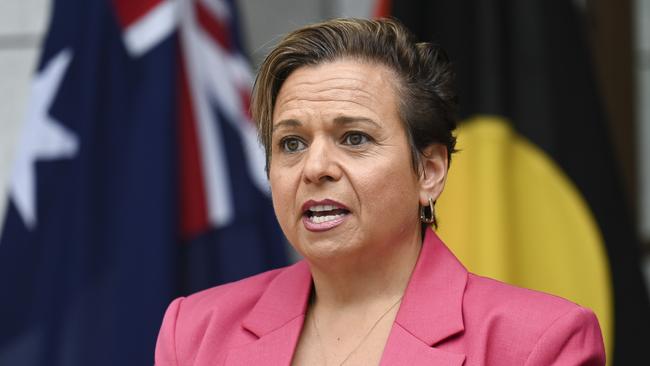
Labor should not form its position on the Israel-Hamas war or a Palestinian state based on fears that a pro-Palestine voter backlash could sweep away senior government MPs, one of Anthony Albanese’s top ministers from western Sydney has declared.
As Labor tries to navigate a critical NSW conference over the weekend set to be beset by protesters and internal dissent over the Middle East, former Victorian premier Daniel Andrews warned his party against backing a Palestinian state and said it was “nonsense” to think recognition would immediately make Palestinian leaders – including terror group Hamas – active partners for peace.
Communications Minister Michelle Rowland will play a key role at the NSW conference as the state branch’s outgoing president and has told The Weekend Australian that a laser focus on cost of living will win over voters in western Sydney and beyond, who disapprove of the government’s handling of Israel.
Ms Rowland said the job of a federal government at a time of community tension was to protect social cohesion rather than focus on the potential of political threats from pro-Palestine independents targeting Sydney-based MPs who represent large Muslim populations.
“The best thing government can do is not to be concerned with voting intentions,” Ms Rowlands told The Weekend Australian.
“The first concern should be about community cohesion and doing everything we can to further that. The fact is that since October last year it has been a cause of community tension.
“I have never seen social cohesion more challenged. But I think the role of local representatives, the role of government, is to do everything we can to assist in that social cohesion.”
The interventions of Ms Rowland and Mr Andrews come as Labor grapples with the threat of organisations such as The Muslim Vote, which are critical of the positions of Labor MPs in electorates that are home to large Muslim populations.
While there is some doubt as to whether the pro-Palestinian independent candidates will eventuate, Labor still holds concerns that the results of the recent UK election – which saw Labour frontbenchers forced out of parliament by anti-Israel activists – could be replicated in Australia.
MPs considered to be at risk include western Sydney-based ministers Tony Burke, Chris Bowen, Ed Husic and Jason Clare.
As Mr Andrews warned that too many people were forgetting the Hamas-led atrocities against Israelis in the October 7 massacre last year, the former premier told a Labor Friends of Israel event that the Jewish homeland not only had no partner for peace, but had an “actively hostile opponent”.
“I do not at this time support a recognition of a Palestinian state. That is not to say that recognition of a Palestinian state is something that should never occur,” Mr Andrews told the congregation at the Beth Israel synagogue in St Kilda.
“But at this time, I do not believe that is a productive step forward. You can only have peace if you have a partner in this … there is an actively hostile opponent who some people tend to try and convince themselves will only if there is a recognition suddenly (they will) become an active partner in a peaceful outcome for the region, the children, for Jews, Palestinians, for everybody.
“That, of course, is nonsense. That makes no sense to me whatsoever.”
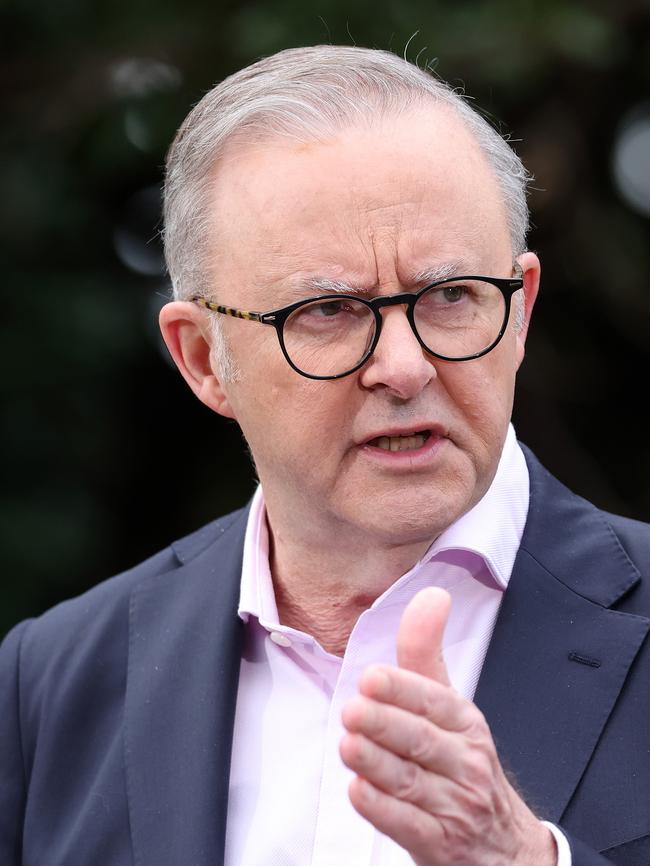
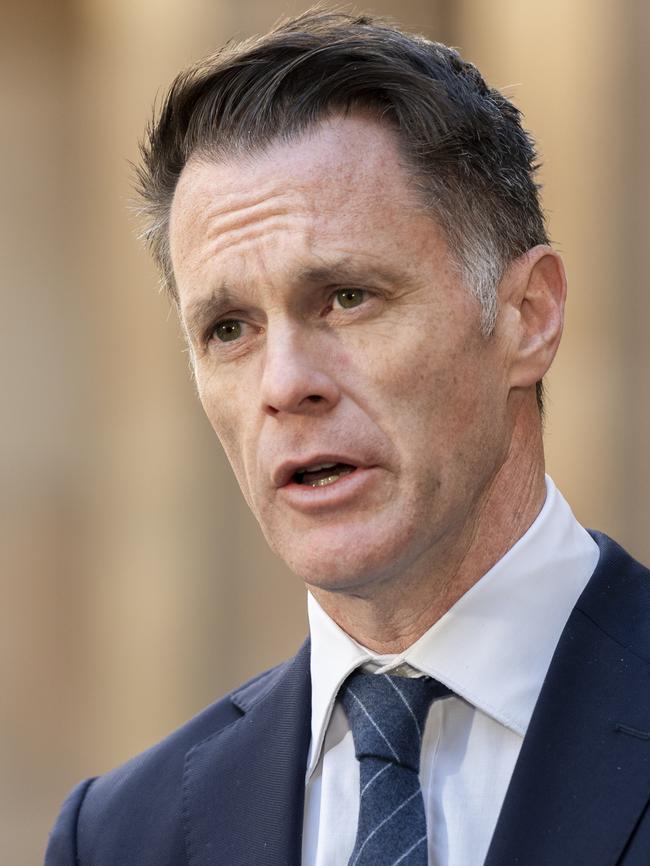
In Sydney, Ms Rowland, the outgoing NSW ALP president, said she was confident the state conference would pass a motion on the Israel-Palestine issue that was in line with the Albanese government’s policy, despite a push for the branch to call on federal Labor to go further and immediately recognise Palestine as a state.
Organisers have told The Weekend Australian that they hold “deep concern” about people being smuggled into those events to disrupt speakers such as Anthony Albanese and NSW Premier Chris Minns.
Security has been tightened to deal with two pro-Palestine protests – one run by the group that bombarded the Prime Minister’s electorate office in inner-west Sydney for months – and fringe events at the conference have been cancelled for what attendees are calling a “locked-down affair.”
The battle at the NSW conference will be over whether to demand Mr Albanese immediately recognise a Palestinian state or wait to do so after negotiations with Israel. State Labor sources said NSW Labor would ultimately back a pro-Palestine motion that is stronger than the motion the federal conference put up last year but that it “would leave some (on the left) unhappy”.
An amendment or motion is likely to come from the hard left – the faction that includes outspoken pro-Palestine NSW upper house MP Anthony D’Adam – which will be harsher on Israel and call for sanctions, but it is likely to be voted down.
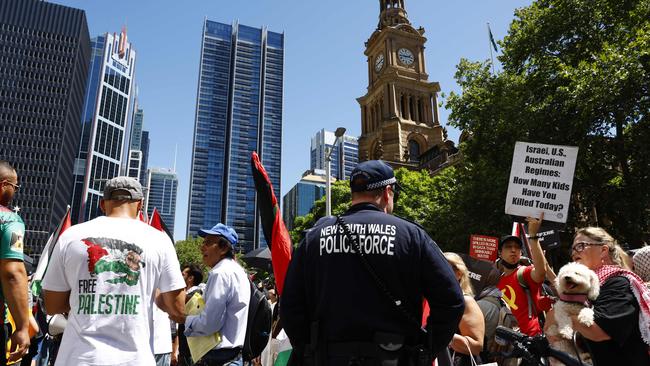
The conference comes as Mr Albanese joined Canadian Prime Minister Justin Trudeau and his New Zealand counterpart Christopher Luxon to call again for a ceasefire in Gaza. They said rising tensions between Israel and Lebanese terror group Hezbollah only made an end to hostilities in the disputed Palestinian territories more urgent.
“A wider-scale war would have disastrous consequences for Israel and Lebanon, and for civilians across the region,” the prime ministers’ statement said.
Israeli Prime Minister Benjamin Netanyahu also faced calls for an immediate ceasefire on Thursday (Friday AEST) in a meeting with US Vice-President and new Democratic nominee for president Kamala Harris.
Ms Rowland cast doubt on whether multicultural communities had different expectations of government than other Australians. “We are such a diverse country, I represent a very diverse electorate, but I have never ascribed to there being an ethnic vote or a multicultural vote,” she said. “People who are voting are Australians. They live here, they pay mortgages, they send their kids to school, they drive on roads, they want all of these things improved and it comes down to quality of life. They want a better life for their kids that they had, and that’s what I think governments should be aiming to deliver on at every election.”
Ms Rowland expects there to be debates at the NSW conference over the Minns government’s protest laws and bail laws.
She will be replaced as NSW Labor president by former industrial relations judge Tricia Kavanagh, after serving in the role for three years. Ms Rowland took over the position in 2021 and was tasked with overhauling the scandal-plagued branch and implementing the recommendations of a review led by former attorney-general Michael Lavarch.
Ms Rowland said the branch was now a “quiet machine” that was professional and enjoyed cross-factional co-operation. She said this was key to Labor winning state and federal elections while she held the role.
“I wanted to prioritise governance and probity, to bring stability after years of scandal, and the culmination of that would be underpinned by implementing the Lavarch reforms so that we could focus on the main game of winning elections,” Ms Rowland said.
“All the Lavarch recommendations from the review have been implemented, we won seats at a federal and state level in NSW and won both of those elections.
“It has been a party office of stability and above all else a quiet machine that has gone about doing its job and thinking about the future and how to create long term Labor governments at a state and federal level.
“I think the Labor Party has become a much more professional organisation. The professionalisation is what I think I have brought. The fact we have been able to focus on the whole point of the party and not be self-centred is a positive thing.

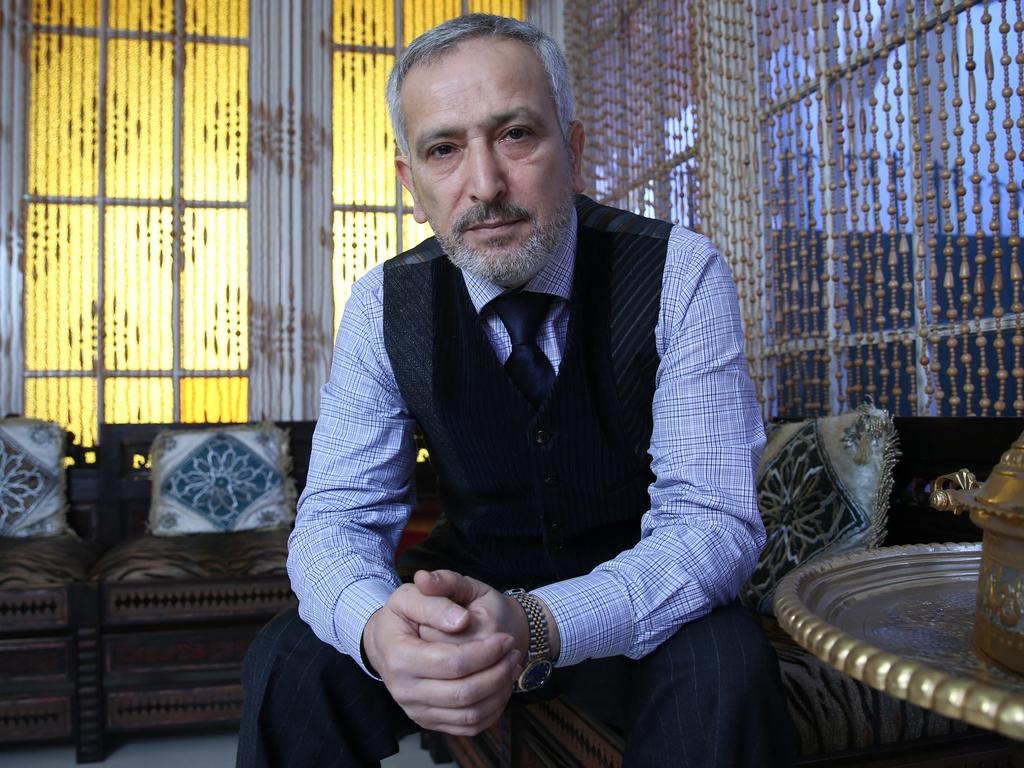




To join the conversation, please log in. Don't have an account? Register
Join the conversation, you are commenting as Logout